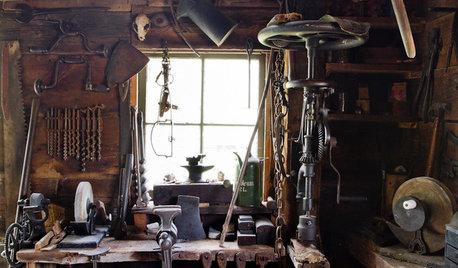Hello, everyone,
I have a little dilemma: I have a few raw milk farmers in my area (about 1 hour drive). There are two farmers that are in business. One farm is rather big - they have 60 Holsteins (mostly), another farm is small - they have 4 Jersey cows. I'd like to have your inputs on which of the farm would have the healthiest milk, based on a few notes and observations. I'll list them all for each farm separately.
Big farm:
60 Holstein cows (there are some Brown cows - just a few). 20+ bulls, 10+ calves.
In the summer (and winter due to cold) they spent most of the day indoors, during nights they graze on the
pasture. Reasoning: too hot for Holsteins to be outdoors under the sun. During winters they are mostly indoors. When I was a kid, I saw the Holsteins outside almost all summer long, and even during the mild winters.
Feed: summer time - grass (limited during the short period of time per day), hay (together 70-80%), fermented chopped corn greens with protein added plus cattle feed mix (which contains corn)(20-30%). Corn greens used for feed are grown by the farmer himself and he states that it is non-GMO. Other feed grain mix he procures elsewhere.
Premises: barn where bulls are kept is somewhat wet and untidy (floors where animal are kept). The bulls
themselves are not clean (legs, tails, even heads). Maybe that's male's nature. Cows barn was cleaned of manure prior to milking. Smell is normal. Floors are clean (concrete).
Calves were kept in the outside stable under tent (temporary) with grain mix and water.
Pasture: about 100 x 300-400+ yards between corn fields.
Milking equipment: 60 milking stations, refrigerated tank (about 2 cu yrds), stainless steel pipes running from cows to the tank (20 ft away) and, then, another run of pipes (unknown material) to the creamery (about 50 ft). Udders/tits wiped clean before milking (observed).
Tests: Fed and state test are a few times a year, local lab test - every 2-nd day (when the milking equipment is cleaned)
Milk test results: were told are way below state limits (this is PA), but didn't show the actual tests. If I'm not mistaken: coliform- 2000, cell (somatic )count - 1000, bacteria count -8 (per sample).
Live span: cows for milking are usually kept for 6 year (average)
Insemination: artificial
Surroundings: Crayola plant (1-2 miles away), quarry (5-10 miles away), cement plant (about 10 miles). No official reports of contaminated water due to shale gas/oil extraction.
Other animals: goats, hens/roosters, pigs
Milk packaging: HTPE 2 plastic bottle/containers (claimed "food grade")
Price: 1 gallon raw cow's milk - $4.75.
Freshness: Morning's or yesterday's milk.
Small Farm:
4 Jersey cows, 1 newly born calf
In the summer time they are mostly outdoors grazing
Feed: outdoors - grass, hey (more that 50% unverified) and cattle feed mix (which contains corn) (less than 50% for the winter use). During winters the cows are indoors (not verified whether they go outside).
Premises: usual rural-type barns (for horses, goats, and cows). Concrete floors, relatively clean and dry.
Pasture: about 3/4-1 sq mile
Milking equipment: small s/s tank, PVC piping, flex hose. They have one stand for cow and one for goat. All
located in semi-basement. The refrigerated tank is about 10-15 feet away. Milking process is not observed - wrong time of day.
Tests: didn't ask - unknown
Fed/state inspections: as often as every week, usually monthly
Live span of cows: did not ask
Insemination: unknown
Surroundings: private properties and some crop fields, quarry (5-10 miles away), cement plant (about 10+ miles). Cell phone (60-ft tall) (or other communication) tower with smaller aerials right next to the farm. No official reports of contaminated water due to shale gas/oil extraction.
Other animals: goats, hens/roosters, pigs
Milk packaging: HTPE 2 plastic bottle/containers.
Price: 1 gallon of raw cow's milk - $8.00.
Freshness: about 2 days old.
There are other farms which produce raw cow's milk, but further away from me.
So, should I choose between these two (the big or the small one), why? Or should I look for something else and why?
Thank you in advance for your input.












renais1
lazy_gardens
Related Professionals
Taylorsville Landscape Architects & Landscape Designers · Gainesville Landscape Contractors · Bristol Landscape Contractors · Cedar Hill Landscape Contractors · Lakeville Landscape Contractors · Mastic Beach Landscape Contractors · Middletown Landscape Contractors · Snoqualmie Landscape Contractors · Baileys Crossroads Landscape Contractors · North Hills Landscape Contractors · Arroyo Grande Fence Contractors · Woodland Hills Fence Contractors · Puyallup Decks, Patios & Outdoor Enclosures · Richmond Decks, Patios & Outdoor Enclosures · South Miami Heights Decks, Patios & Outdoor Enclosuressandy808
lucky_p
boggardner
mersiepoo